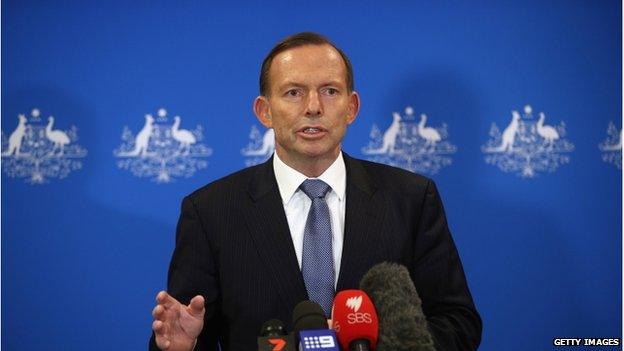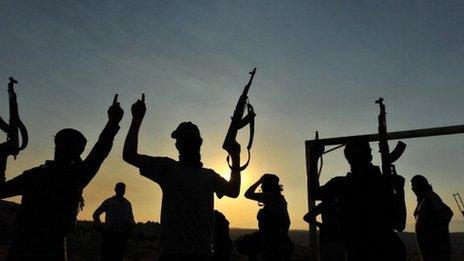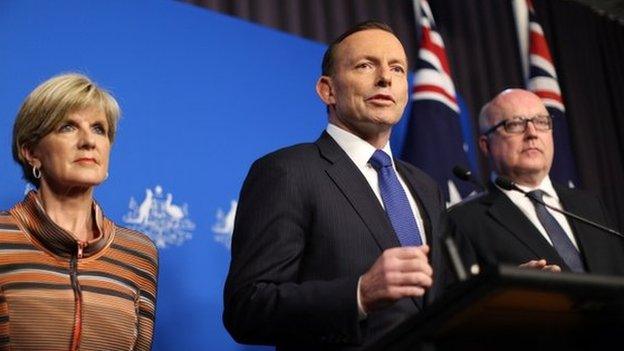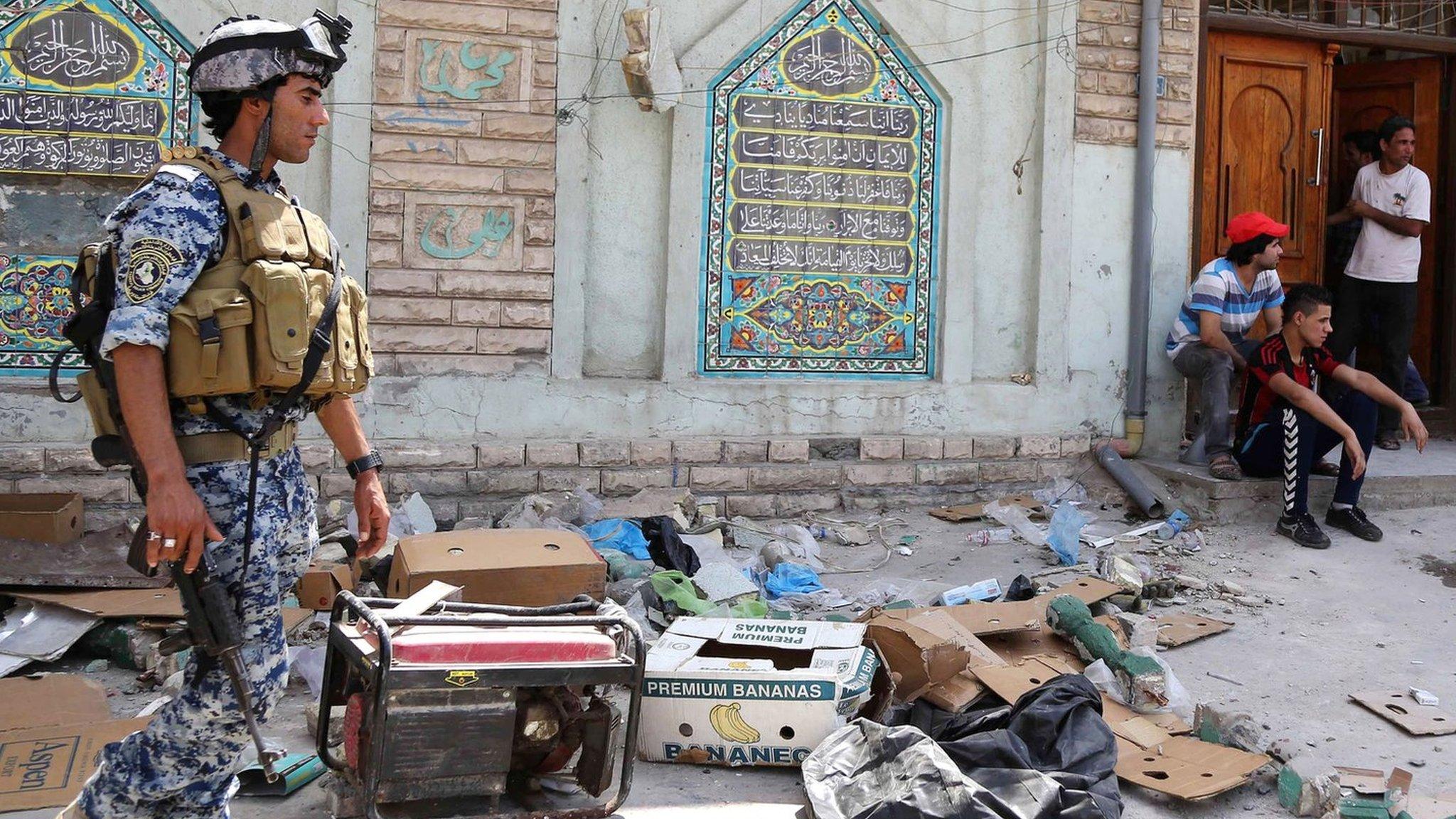Australia puts counter-terrorism units in airports
- Published

Mr Abbott said the two counter-terror units began operations last week
New counter-terrorism units have been set up at two Australian airports, PM Tony Abbott says, amid concern over Australians fighting in Iraq and Syria.
Mr Abbott told parliament units in Sydney and Melbourne began operating last week.
They had already intercepted at least one person of interest, he said.
Meanwhile Australia's top spy says that 15 Australians are believed to have died fighting for Middle East-based extremist groups like Islamic State.
Mr Abbott did not give further details about how the person was intercepted or their intended destination.
He said the move would be extended to all Australia's international airports, with an additional 80 border force officers to monitor the movements of people on security watch lists.
Biometric screening would also be introduced to all international airports, according to Fairfax Media., external
At least 60 Australians were known to be fighting with jihadist groups in Syria and northern Iraq, the prime minister said.
"Active support"
Separately, the director general of Australia's spy agency, David Irvine, told reporters that 15 Australians fighting with militant groups were believed to have been killed in the current conflicts in Iraq and Syria, including two young suicide bombers.
Dozens of Australian fighters had already returned home and "a good number of these" remained a concern to the authorities, he said.
Mr Irvine said 100 or more people in Australia were "actively supporting" militant groups by recruiting new fighters, grooming suicide-bombing candidates, and providing funds and equipment.
Australia and the United States signed an agreement on Wednesday to share information that would confirm identities of foreign travellers at airports.
Australia is also spending an extra A$630 million (£354m, $587m) over the next four years to tackle the threat of home-grown terrorism. This week the government announced that as part of that package, it would spend A$64 million to help prevent young people from becoming radicalised.
Mr Abbott had earlier announced Australia would restrict citizens from travelling to certain areas to join militant groups.
The moves follow a series of disturbing reports. An image of a young boy, reportedly the son of an Australian terror convict, holding a Syrian's severed head shocked Australia earlier this month.
In July, an 18-year-old suicide bomber from Melbourne killed several people in a market near a Baghdad mosque.
In the same month authorities in Canberra issued arrest warrants for two Australian Islamic State fighters, after one was pictured brandishing the severed heads of what appeared to be Syrian government soldiers.
- Published6 August 2014

- Published11 August 2014

- Published5 August 2014

- Published21 July 2014
